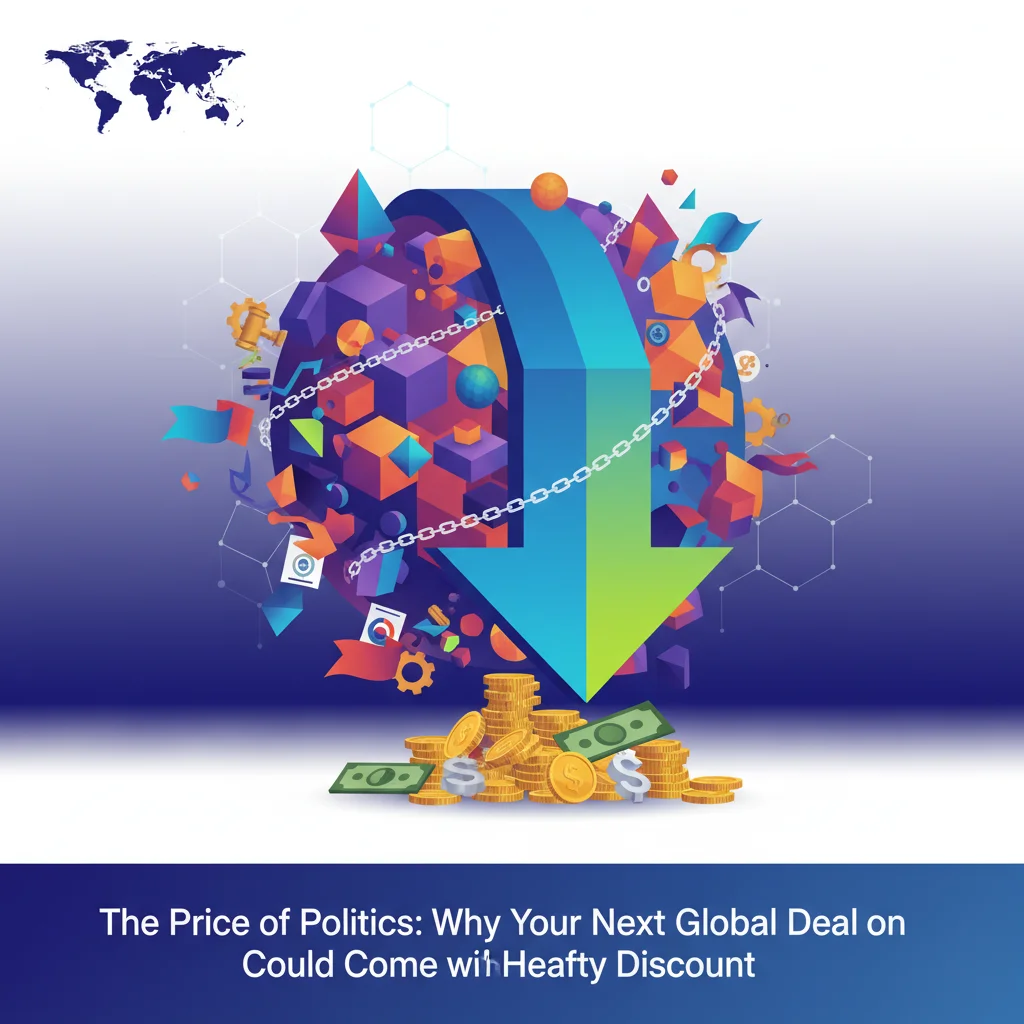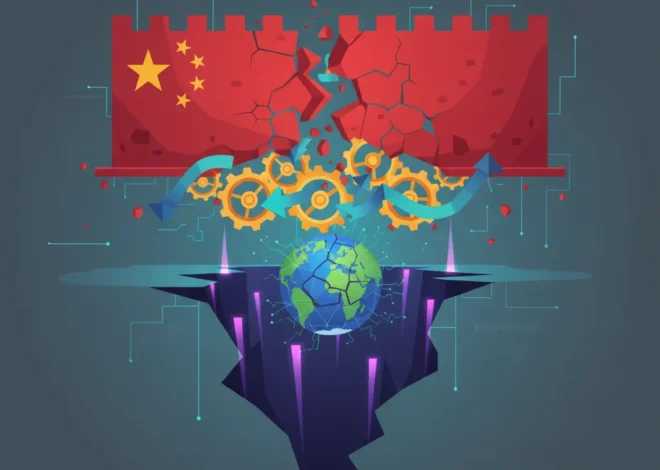
The Price of Politics: Why Your Next Global Deal Could Come with a Hefty Discount
The New Reality of Global Investing: When Politics Trumps Profit
Imagine this: your company successfully acquires a promising international tech firm. The deal is done, the ink is dry, and you’re focused on integration and growth. Then, years later, a government steps in, citing national security concerns, and forces you to sell your prized asset—potentially at a significant loss. This isn’t a hypothetical scenario from a political thriller; it’s the new, high-stakes reality of international mergers and acquisitions (M&A), and it’s sending shockwaves through the world of finance and investing.
A recent case in the Netherlands is serving as a stark warning to global investors and business leaders. The Dutch government is leveraging new powers to scrutinize, and potentially unwind, the acquisition of a small semiconductor start-up, Nowi, by Nexperia. While Nexperia is a Dutch company, its ownership by the Chinese technology firm Wingtech has placed it squarely in the crosshairs of Western governments concerned about the transfer of sensitive technology. This move signals a profound shift in the global economy, where geopolitical risk is no longer a footnote in a prospectus but a central factor that can make or break a deal.
The Nexperia Saga: A Test Case for a New Era
At the heart of this unfolding drama is Nexperia, a major player in the semiconductor industry. Its 2021 acquisition of Nowi, a Dutch start-up specializing in energy-harvesting power management technology, seemed minor at the time, valued between €10 million and €20 million. However, the Dutch government is now using its “Investment, Merger and Acquisition Security Test Act”—a law passed after the deal was completed—to retroactively review the transaction. The concern? That sensitive technology, even if seemingly basic, could fall into the hands of a strategic rival like China.
This isn’t an isolated incident. Nexperia has faced similar pressure in the UK, where it was forced to divest its ownership of Newport Wafer Fab, Britain’s largest microchip plant, under the UK’s National Security and Investment Act (source). These actions by European governments highlight a coordinated, transatlantic effort to protect critical supply chains and technological advantages, fundamentally altering the landscape for cross-border trading and investment.
Nexperia has argued that it is fundamentally a Dutch entity with deep European roots and that Nowi’s technology is not of strategic importance. But in today’s climate, perception and ownership structure are as crucial as the technology itself. The outcome of this Dutch “test case” will set a powerful precedent, influencing M&A strategies and corporate economics for years to come.
Introducing the “Political Risk Discount”
The most significant consequence of this heightened scrutiny is the emergence of a new concept in deal-making: the “political risk discount.” International buyers, particularly those from nations viewed as geopolitical rivals by the West, may now argue for a lower purchase price to compensate for the risk that a government could retroactively block the deal or force a divestment down the line. It’s a form of self-insurance baked directly into the valuation.
Think of it as the M&A equivalent of pricing in risk on the stock market. Just as a company in a volatile industry might trade at a lower multiple, an acquisition target in a sensitive sector being bought by a “risky” international buyer will now face valuation pressure. This fundamentally changes the negotiation dynamics. Sellers can no longer expect a straightforward auction to the highest bidder; they must now weigh the certainty of a lower bid from a “safe” domestic or allied buyer against a higher, but riskier, bid from a foreign entity.
To illustrate how this impacts a deal’s financials, consider this hypothetical scenario:
| Valuation Component | Scenario A: No Political Risk | Scenario B: With Political Risk Discount |
|---|---|---|
| Base Enterprise Value | $500 million | $500 million |
| Synergy Premium | $100 million | $100 million |
| Political Risk Discount | $0 | -$75 million (15%) |
| Final Offer Price | $600 million | $525 million |
As the table shows, a 15% discount to account for potential government intervention significantly alters the final price, representing a substantial loss of value for the selling company and its shareholders.
Navigating the New M&A Minefield: A Guide for Leaders
For business leaders and investors, the message is clear: the rulebook has changed. Simply conducting financial and legal due diligence is no longer enough. Here’s how to adapt:
- Geopolitical Due Diligence is Non-Negotiable: Companies must now thoroughly assess the political climate in both the buyer’s and seller’s countries. This involves understanding investment screening laws, identifying sensitive sectors, and analyzing the current geopolitical relationship between the nations involved.
- Engage with Regulators Early and Often: Proactive communication with government bodies like the Committee on Foreign Investment in the United States (CFIUS) or their European counterparts is crucial. A transparent approach can help de-risk a transaction before it’s too late.
- Creative Deal Structuring: Lawyers and banking advisors are now exploring novel deal structures. This could include carving out sensitive divisions of a company, establishing governance structures that limit foreign control over certain operations, or including “reverse termination fees” that penalize a buyer if a deal fails due to regulatory disapproval from their own country.
- Re-evaluating Risk vs. Reward: Boards of directors must have frank conversations about their appetite for geopolitical risk. The highest offer on the table may no longer be the best one if it comes with a significant chance of being unwound by regulators months or years down the road.
The Broader Economic Fallout
The ripple effects of this trend extend far beyond individual M&A deals. This new protectionism could slow the flow of global capital, a cornerstone of modern economics. Venture capital and private equity firms that rely on cross-border investments to fund innovation in sectors like blockchain and AI may become more cautious, potentially starving promising start-ups of necessary funding.
The global banking sector, which facilitates and finances these multi-billion dollar transactions, also faces new complexities. Underwriting a deal now requires a sophisticated understanding of international relations, a skill set that goes far beyond traditional financial analysis. The cost and complexity of M&A advisory services are likely to increase as a result.
Ultimately, this shift represents a move away from a purely market-driven approach to one where national interest is a primary consideration. As one M&A lawyer noted, “the pendulum has swung” away from open markets and towards protectionism, especially in technology.
The case of Nexperia in the Netherlands is more than a business story; it’s a harbinger of a new era in global commerce. The “political risk discount” is a tangible manifestation of the growing friction between globalization and national security. For anyone involved in international finance, investing, or business strategy, understanding and adapting to this new landscape is not just advisable—it’s essential for survival.


